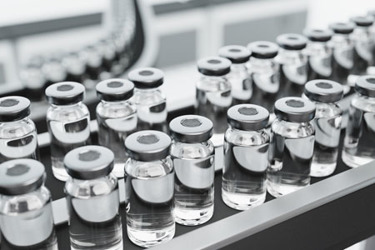Extractables And Leachables Testing
By Christopher Williams, Director, Laboratory Operations, and Amanda Connor, Principal Scientist, Extractables and Leachables

Requirements from regulatory agencies have become increasingly rigorous with regards to the detection, identification, and quantification of extractable and leachable compounds in pharmaceuticals, drug delivery systems and biomedical devices. This increased scrutiny is the result of several well-documented incidents of contaminants leaching from containers and packaging, resulting in a potential or real risk to humans. As a result, regulatory agencies, such as the U.S. Food and Drug Administration (FDA) the European Medicines Agency (EMEA), have placed increased scrutiny on potential extractables and leachables in drug product container and closure systems as well as from manufacturing contact components.
In recent years, concerns about potential contamination from drug packaging have led regulatory agencies to impose stricter requirements for extractable and leachable testing. Leachables are chemicals that can migrate from containers and manufacturing equipment into the drug itself. These contaminants may come from various sources, including plastics, adhesives, and inks.
Although leachables are often present at low levels, they can still pose a risk to patients if not properly monitored and controlled. This article explores the analytical challenges of leachables testing and the importance of ensuring patient safety. Learn how to navigate the regulatory landscape and implement best practices for leachables analysis in your pharmaceutical development process.
Get unlimited access to:
Enter your credentials below to log in. Not yet a member of Pharmaceutical Online? Subscribe today.
